Chinese timepieces give tourbillons a whirl
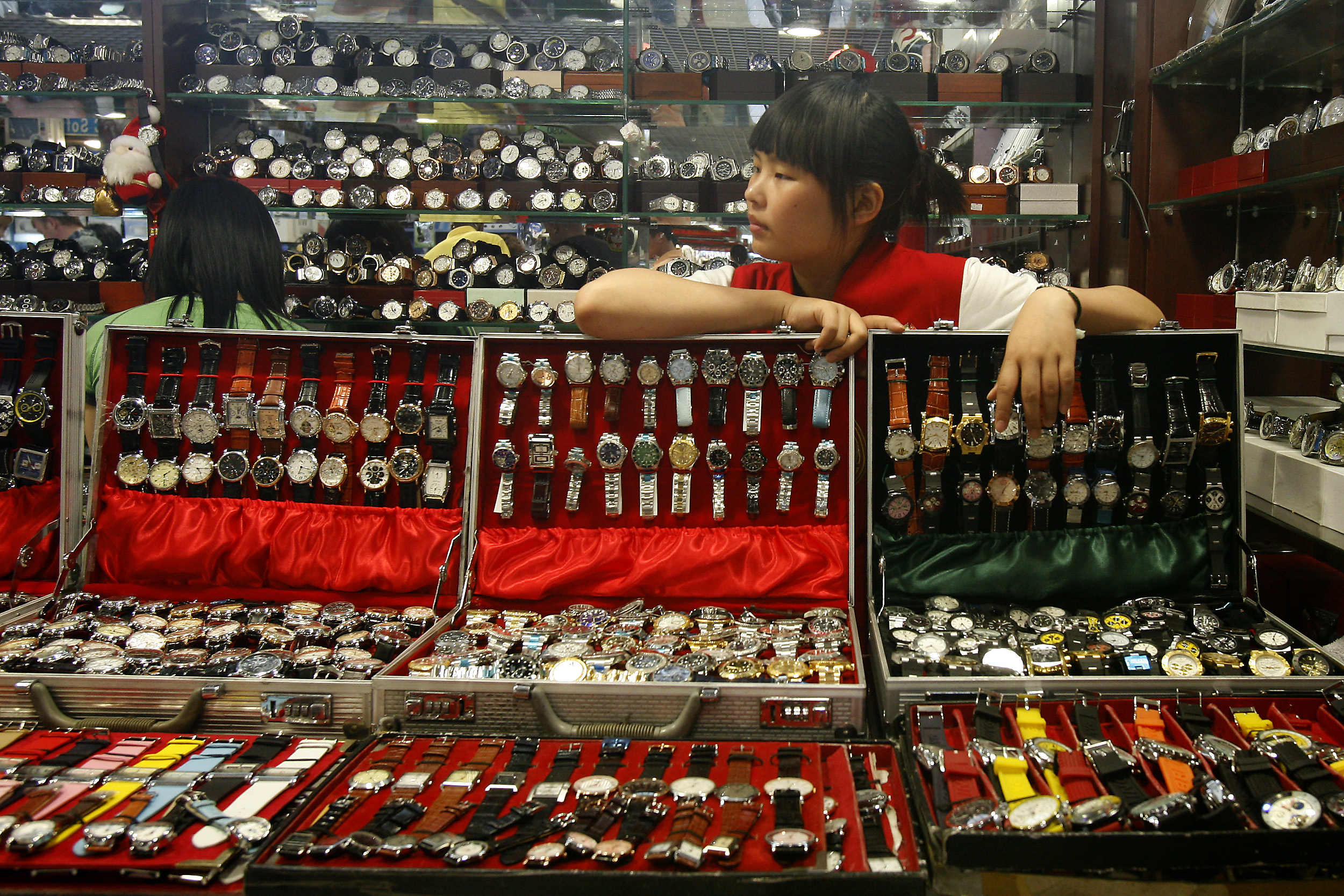
Chinese watchmakers may have a reputation for poor quality and fake timepieces, but demand for locally made luxury watches featuring elaborate mechanisms is ticking along nicely.
The imposing statue of the late Chairman Mao Zedong still watches over the entrance of the Beijing Watch Factory in the Changping district in northern Beijing.
A symbol of China’s economic power, it remains a relic from the past as market forces steadily play a greater role and the country opens up to the rest of the world.
Founded in 1958, the watchmaking firm was privatised in 2004.
“Since then business has been easier,” Director General Miao Hongbo told swissinfo.ch. “When we were a state-run company I had a thousand bosses to please. Now I’m the one who can take decisions.”
The director sports a brand-new prototype watch, which was recently presented at the China Watch and Clock Fair in Shenzhen, featuring a cloisonné enamel dial showing a section of the Great Wall of China and the new futuristic China Central TV headquarters.
The bird’s nest structure of its leather bracelet resembles the Beijing National Stadium, built for the 2008 summer Olympic Games.
“This is what makes us special and different from the competition,” said Miao. “We combine Chinese culture and technology to make cultural watch pieces.”
The firm’s other particularity is that in 1996 it became the first Chinese company to start manufacturing tourbillon watch movements.
The watchmaker, which employs 610 staff, only makes mechanical watches – 10,000 in 2011, including several hundred extremely elaborate designs, and 800,000 movements.
Production is destined exclusively for the Chinese market where demand for high-end products has exploded. A Beijing Watch tourbillon movement can cost from SFr5,700-69,000 ($6,000-72,200).
Swiss machine tools
Smelling of oil and packed full of machines – mostly Swiss-made – the 1950s red-brick factory is reminiscent of established watchmakers from the Jura region.
“But we are still a long way off Swiss quality,” Miao admitted jealously. The director invests three per cent of company turnover in research and development but laments the lack of proper watchmaking training in China.
“Swiss watchmakers have taught the Chinese that watches are not just timepieces but also fabulous works of art and technology,” he declared.
Miao said Swiss manufacturers had nothing to fear from the Chinese – for now.
“But in ten to 20 years it will be different,” he exclaimed.
The director said his business was not really affected by fake watches as his brand was not that well known, and to be copied was actually a sign of recognition. His main competitors are Chinese rather than Swiss, led by Sea-Gull based in Tianjin, he added.
Fakes
Ma Guangli, chief engineer with Sea-Gull, had lots of complaints about counterfeiters, however.
“Our products suffer a lot due to fake models,” he declared.
Sea-Gull has a much bigger factory, employing 3,000 people in brand new offices in the industrial district of the bustling city port some 150 kilometres from Beijing. It became China’s first watch company when it started business in 1955.
The state-run firm produced 200,000 mechanical watches last year, including 10,000 with more intricate designs.
Ten times cheaper
“Compared to them [Swiss], we are primary school kids,” said Ma, adding that the Chinese are fast learners. “Our aim is to produce the same kind of Swiss mid-range products in ten years’ time and then to do better.”
He explained that Sea-Gull invests seven per cent of its turnover in R&D and said for a complicated model a Chinese watch was ten times cheaper than a Swiss equivalent – a basic-level Sea-Gull tourbillon model costs SFr5,700.
The engineer’s ultimate goal is to start partnerships with Swiss manufacturers. Up to now Sea-Gull products have typically generated Swiss suspicions.
“Every time we took part in the Baselworld watch fair our products received complaints concerning intellectual property rights, several by the Swatch Group. Every time we won the case,” he commented.
Ma added that he had invited the Federation of the Swiss Watchmaking Industry and Swatch chief executive Nick Hayek to visit the Sea-Gull premises in Tianjin as “cooperation can only be beneficial for both countries”.
Observers say it is highly unlikely movements made by Sea-Gull or Beijing Watch Factory will end up in counterfeit Swiss watches. Although the firms do not have control over all areas of their buyers’ activities, the watch movements of these two leading Chinese brands are easily identifiable, especially pieces like tourbillons, and fakes would be quickly detected.
The tourbillon movement was developed in 1795 by the French-Swiss watchmaker Abraham-Louis Breguet.
It aims to counter the effects of gravity by mounting the escapement and balance wheel in a rotating cage to negate the effect of gravity when a timepiece is stuck in a certain position.
The movement was originally designed to improve accuracy but is still included in high-end watches. It is considered to be one of the most challenging mechanisms to make.
According to the Federation of the Swiss Watchmaking Industry, last year China was the world’s leading exporter of wrist watches 682 million units with an average price of SFr1.90 each. Hong Kong came second (400 million) followed by Switzerland which exported 30 million pieces with an average price of SFr650.
In total value for watch exports, Switzerland came out on top (SFr21 billion), ahead of Hong Kong (SFr8.4 billion), followed by China, Germany and France.
(Translated from French by Simon Bradley)

In compliance with the JTI standards
More: SWI swissinfo.ch certified by the Journalism Trust Initiative
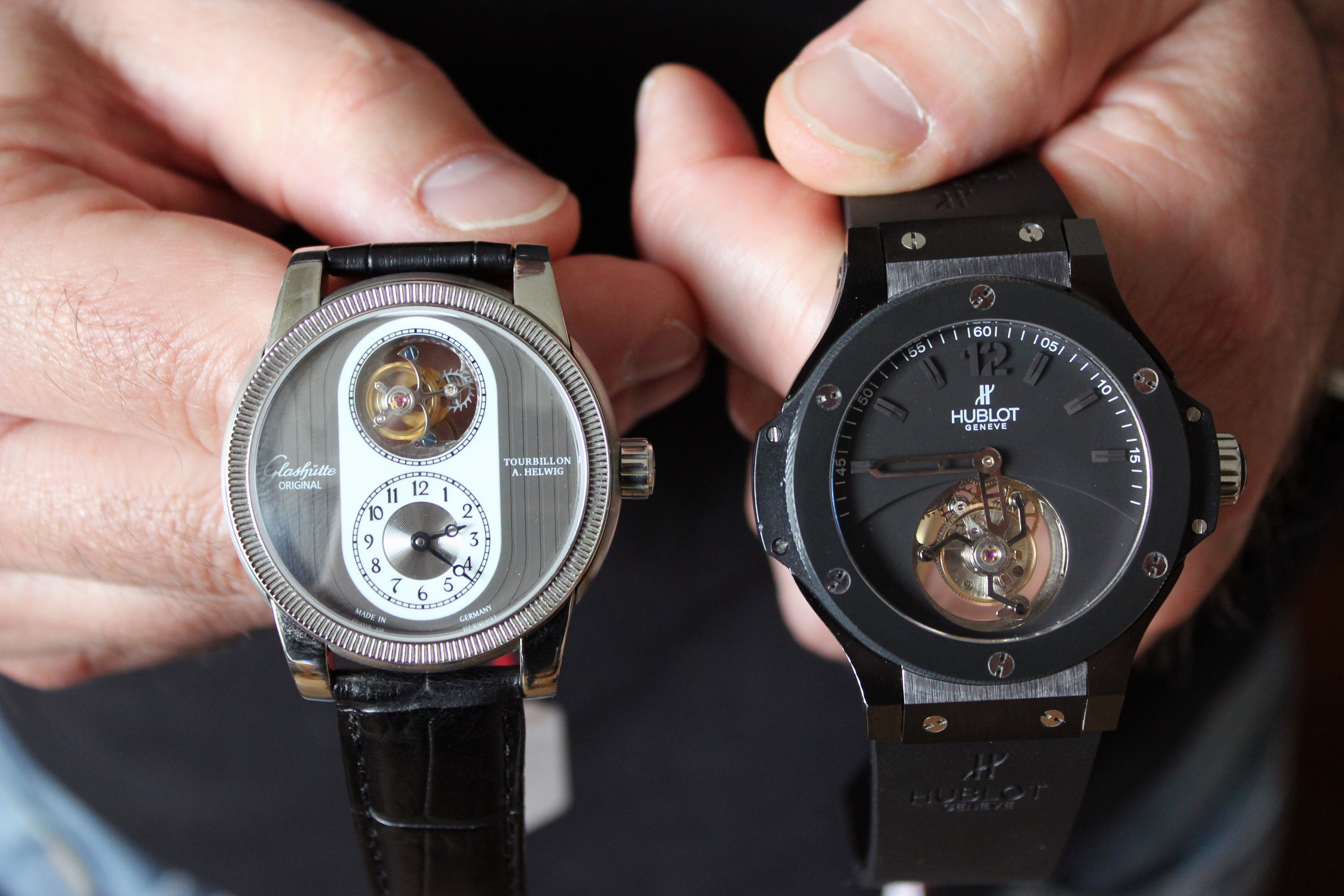
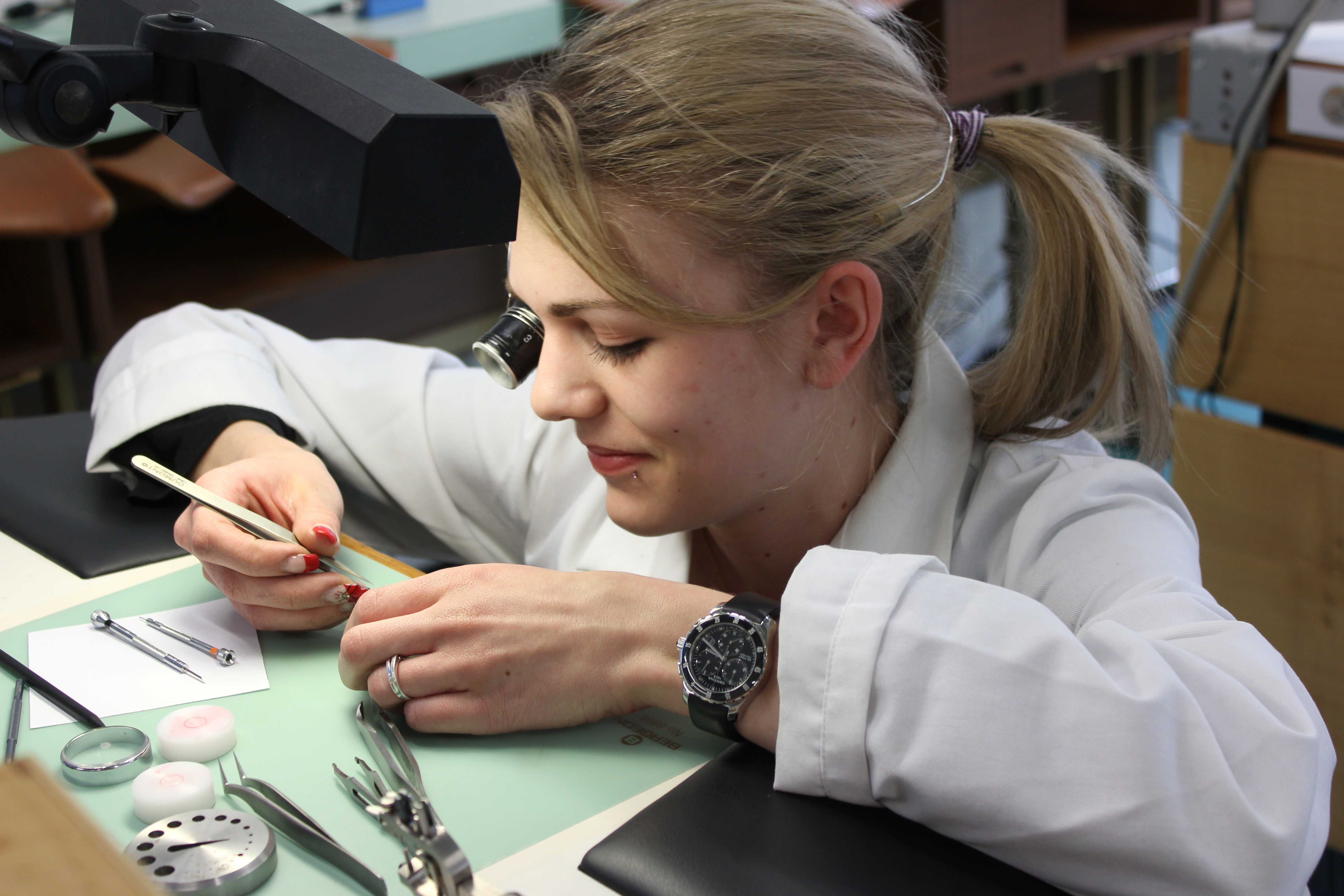
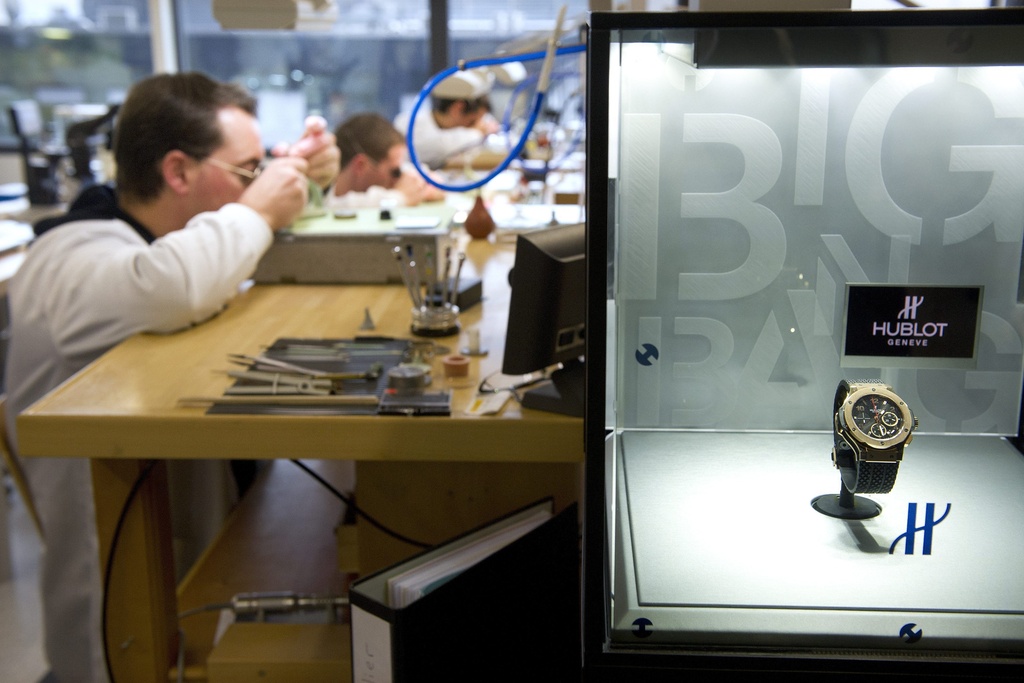
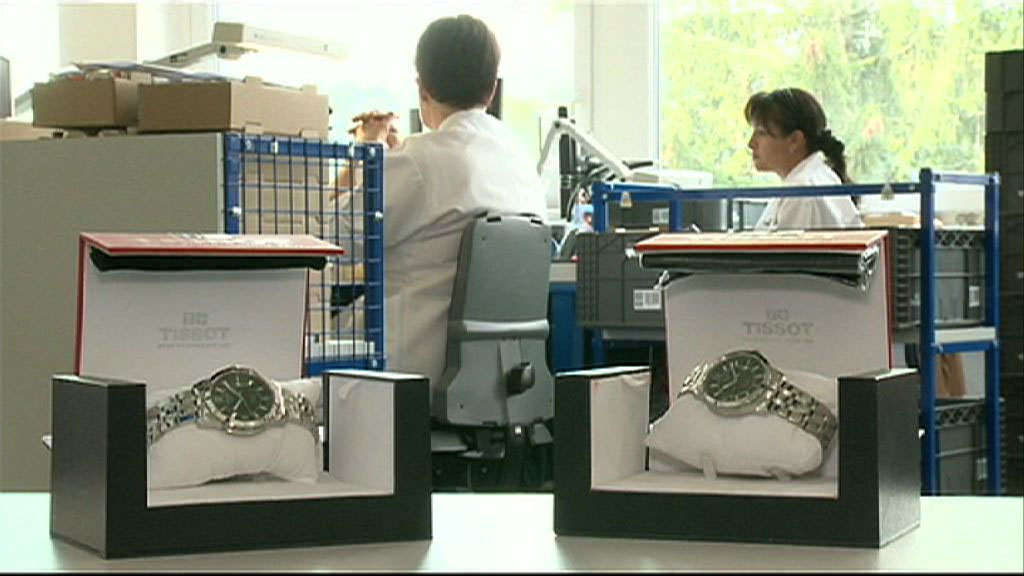
You can find an overview of ongoing debates with our journalists here. Please join us!
If you want to start a conversation about a topic raised in this article or want to report factual errors, email us at english@swissinfo.ch.